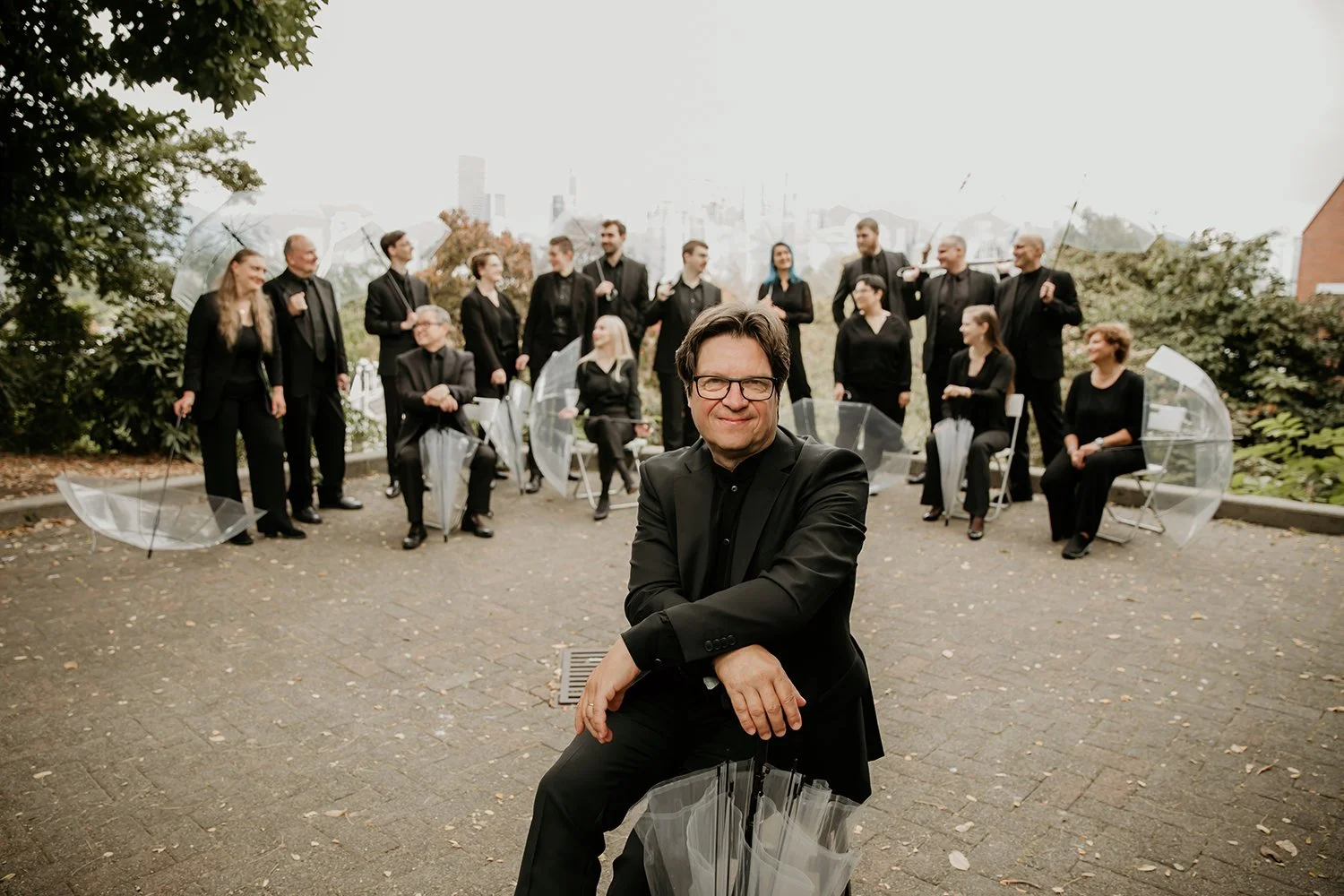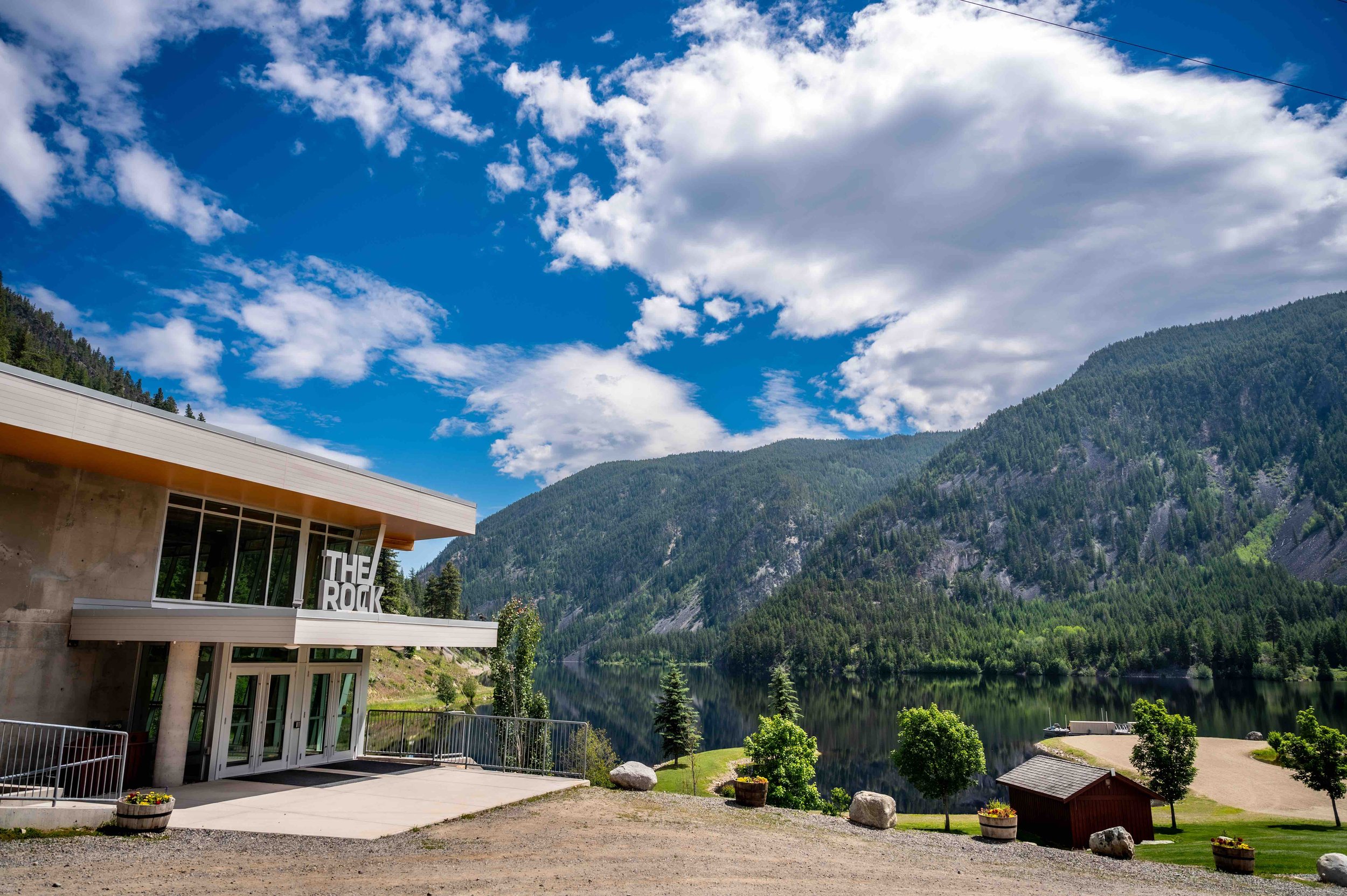Singer-songwriter Marin Patenaude channels the loss and pain of past year into emotionally virtuosic music
The Vancouver Folk Music Festival’s Circle of Songs appearance might finally bring the artist’s career-defining 2020 release Sight Unseen the attention it so deserves
The Vancouver Folk Music Festival presents Marin Patenaude with Khari Wendell McClelland, Kathleen Nisbet, and Dawn Pemberton in Circle of Songs, streaming from July 16 to 25.
ONE OF THE ODD ways in which the COVID-19 pandemic has changed the language of the arts can be seen in performers’ adoption of the term pivot. In biz-speak, it’s come to mean changing the direction of a company when its old ways aren’t meeting the needs of the market—and so, with the market for live performance dead or dormant for more than a year, we’ve seen singers turning themselves into video documentarians, dancers becoming life coaches, and actors designing jewellery.
In the parlance of the day, they’re all pivoting.
Marin Patenaude, however, couldn’t make the turn. “I like to say that I pitted instead of pivoted, and crawled into a little dark winter hole,” the singer-songwriter says, on the line from her West Kootenay retreat near Castlegar.
Today, it should be clear, she’s laughing at herself, and at times during our conversation she sounds positively giddy about her impending return to live performance. But during the bleak days of 2020, she had good reason to despair.
Not only was the world largely failing to respond to a threatening virus, but she’d just released what should have been a career-defining second album, Sight Unseen, into an uncaring universe. Despite containing eight gorgeous, impassioned, and profound original compositions, and despite the backing of City and Colour frontman Dallas Green, who’d signed her to his Still Records imprint, Patenaude found no traction in a world preoccupied with other things.
And, on top of this, Karl Bareham—the U.K.-born recording engineer responsible for Sight Unseen’s superior sonics—died in a freak scuba-diving accident not long after finishing the record. His death hurt Patenaude more than anyone around her realized.
“I was raised with a very comfortable relationship to death, and I’ve experienced a lot of tragedy,” she allows, choosing her words carefully. “Having so many people coming and going in my life, and having such a wide community, you tend to lose a lot of people. The more people you know, the more people you know pass on….So I think when you experience people dying and you kind of see that that’s the path they’re on, it’s not that surprising. But with Karl, it was totally shocking. It blindsided me. And we were just about to see each other again for the second time ever. We met once in Vancouver, with Dallas, and just instantly bonded. Like, we sat across the table from each other, holding hands, and it was so beautiful. We immediately fell in love with each other in this absolutely compatible, comfortable way.”
Many long-distance telephone calls ensued, with the two talking about way more than how to polish Sight Unseen so that it shone.
“I was really looking forward to connecting with this beautiful human again,” Patenaude says. “And then I got the call.
“No one knew of my relationship to Karl—the level of intimacy that we had created just through our conversations and working on the music together,” she continues. “We became very good friends, but I didn’t have anyone else who was friends with him in my life regularly. It was this very private relationship, and so I had no one to grieve with here—which was really interesting, to go through grief alone.”
Patenaude’s “little dark winter hole” was very dark indeed. But the self-reliance she learned growing up as an “independent child” in remote Horsefly, B.C., has served her well.
“With pain comes growth and healing,” she says now. Her pandemic winter, she explains, “exposed things about myself that I didn’t know I was capable of. I was experiencing levels of emotion that I had never felt before, and that created a greater sense of self. I was kind of finding my value within my connection to my power and my life force, and recognizing that without that life force, music, I don’t do very well."
She’s now ready, she says, to build on what Sight Unseen had begun to reveal—most notably a new sense of courage and emotional virtuosity in her singing. And while she’s plotting a cautious return to performance, beginning with a songwriters’ circle that she taped with Khari Wendell McClelland, Kathleen Nisbet, and Dawn Pemberton for this year’s online edition of the Vancouver Folk Music Festival, she’s hoping that in the next few months she’ll be able to give her new record the launch it was initially denied.
“It feels like a record doesn’t really actually exist in the world until you play it live,” she says. “So it will be a slow release; it’ll be a slow discovery for people. But it feels timeless, the album itself. If someone discovers it in four years, I think they’ll still find a deep connection to it. The production on it is so beautiful, and I don’t think it’s specific to any specific time.”
In the end, perhaps Patenaude didn’t need to pivot, for it’s the world that’s turned.














